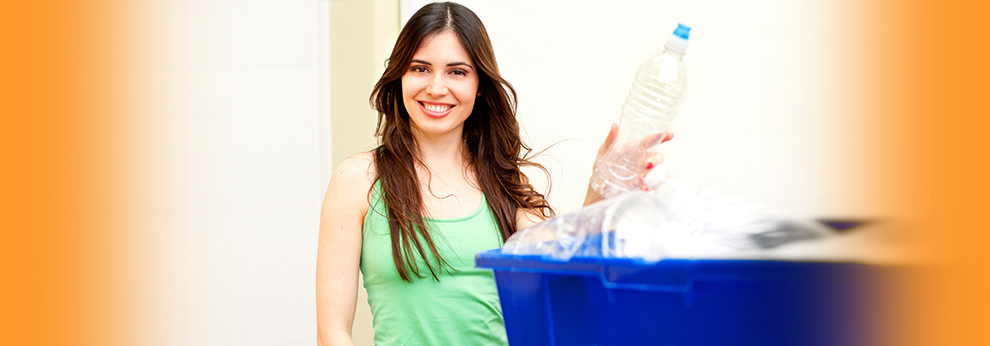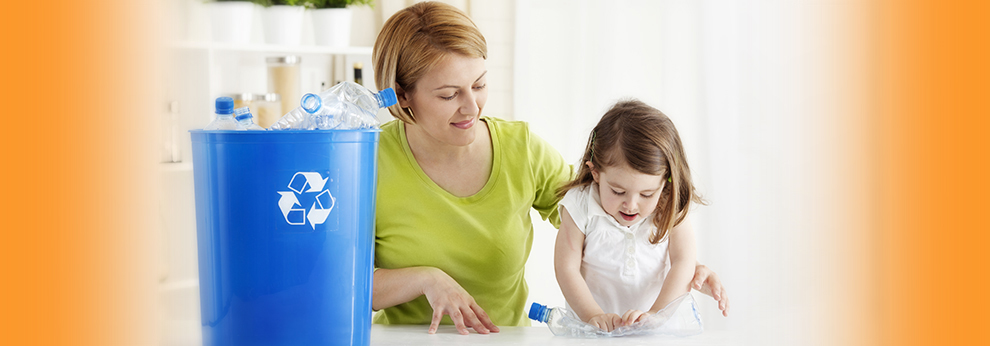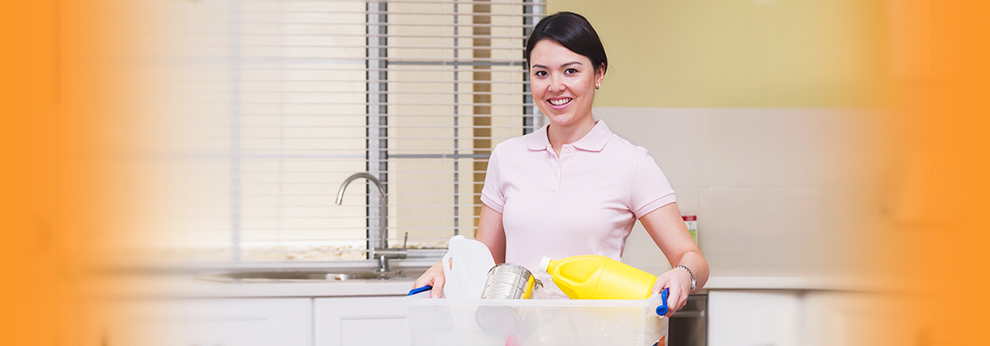Optimize Your Recycling Habits with These Handy Tips
Posted on 07/10/2025
Looking to make your recycling efforts more efficient and effective? Recycling is one of the easiest yet most impactful ways to reduce your environmental footprint and contribute to a healthier planet. However, many people unknowingly engage in habits that can hinder the recycling process. In this comprehensive guide, you'll discover powerful strategies and practical tips to optimize your recycling habits and ensure that your efforts truly make a difference.
Why Is Optimizing Your Recycling So Important?
Recycling isn't just about tossing items into the blue bin. Proper recycling helps conserve natural resources, reduces energy usage, and decreases landfill waste. When you improve your recycling habits, you play a vital role in creating a sustainable future for generations to come. Moreover, well-optimized recycling habits extend the lifespan of materials, minimize pollution, and support the economy by providing raw materials to manufacturers.

Assess Your Current Recycling Practices
Before you can optimize the way you recycle, it's important to evaluate your current habits. Reflect on the following:
- Do you know which materials your community accepts for recycling?
- How often do you check for recycling symbols and guidelines?
- Are you familiar with "wish-cycling"--placing non-recyclables in the recycling bin out of hope?
Honest self-assessment is the first step to better recycling.
Handy Tips to Optimize Recycling Habits at Home
1. Know What's Acceptable in Your Area
Recycling rules vary by city and region. Some municipalities accept certain plastics while others don't. Always read your local guidelines to understand what's recyclable in your area. Knowledge is key to optimized recycling habits!
2. Rinse and Dry Recyclables
Food residues can contaminate recyclable materials, causing entire batches to end up in the landfill. To prevent this, always rinse and dry containers before placing them in your recycling bin.
3. Don't Bag Your Recyclables
Most recycling facilities are not equipped to sort plastic bags or bagged recyclables. Place items directly into the bin. If you must use a bag for collection, empty it into the bin and reuse the bag for future use.
4. Flatten Cardboard Boxes
Optimize space in your recycling bin by flattening cardboard boxes. This simple step helps ensure more materials fit in collection trucks and are processed efficiently at the facility.
5. Keep Non-Recyclables Out
Common contaminants include pizza boxes with grease, plastic utensils, Styrofoam, and certain types of glass. Check the recycling symbols and local guidelines to avoid placing non-acceptable items in your bin.
6. Recycle Electronics Responsibly
Electronics contain hazardous materials and should not go in your regular recycling bin. Take old batteries, phones, and computers to designated e-waste collection centers for safe recycling.
Advanced Ways to Optimize Your Recycling Routine
Stay Updated with Local Programs
Municipalities occasionally update their recycling services. Sign up for local alerts or newsletters to keep abreast of changes in collection schedules or accepted materials. Being informed enables you to enhance your recycling strategies effectively.
Compost Organic Waste
Organic waste such as food scraps and yard clippings can be composted instead of thrown away. Composting not only reduces landfill waste but also creates nutrient-rich soil for gardening purposes.
Repurpose Before Recycling
Consider if an item can be reused or repurposed before tossing it in the recycling bin. Glass jars can become storage containers, and old newspapers can be used for cleaning windows or packing material.
Set Up a Home Recycling Center
Organize your recyclables by material: paper, plastic, glass, and metal. Clearly label bins and place them in a convenient location in your kitchen or garage. This makes sorting simple and encourages everyone in your household to participate.
Educate Family and Roommates
Share recycling tips and best practices with those you live with. Clear communication helps everyone understand what can be recycled and reduces contamination.
How to Optimize Recycling Habits at Work and in Your Community
Start a Workplace Recycling Program
Encourage your employer to provide clearly labeled recycling bins for different materials. Share informative posters and send emails to keep colleagues informed about the benefits of proper recycling.
Join or Organize a Community Clean-Up
Participating in neighborhood clean-up events is a great way to educate others and model responsible recycling behavior. You can also partner with local organizations to host recycling drives for items such as clothing, batteries, or electronics.
Support Local Recycling Initiatives
Buy products made from recycled materials and support businesses committed to eco-friendly practices. This closes the loop and increases demand for recycled goods, further enhancing recycling programs in your area.
Common Recycling Mistakes to Avoid
- Wish-cycling: Putting items in the bin "just in case" they might be recyclable often causes contamination.
- Ignoring caps: Some programs ask to remove bottle caps, others don't. Check your local guidelines!
- Mixing recyclables with garbage: Even a small amount of trash can ruin a batch of otherwise perfectly recyclable materials.
- Recycling food or liquid-soiled items: Only clean and dry items should go in the bin.
Smart Sorting: Understanding Recycling Symbols
Many items are marked with recycling symbols, but each symbol is not created equal. For plastics, look for the number inside the triangle, as it indicates the resin type. Numbers 1 and 2 (PET and HDPE plastics) are widely accepted, while others may not be recycled in your area.
- Paper recycling: Envelopes, newspapers, cardboard
- Plastic recycling: Bottles and containers with #1 or #2
- Glass recycling: Bottles and jars (no windows or mirrors)
- Metal recycling: Aluminum cans and clean foil
- Check with your local hauler for a full list!
Go Beyond the Bin: Reduce and Reuse for Maximum Impact
Recycling is vital, but the ultimate way to optimize your environmental impact is to reduce what you consume and reuse materials whenever possible:
- Buy in bulk to reduce packaging waste.
- Choose reusable bags, bottles, and containers instead of single-use plastics.
- Opt for products with minimal or recyclable packaging.
- Donate unwanted clothing, appliances, and household goods to charitable organizations instead of throwing them away.
By integrating reduction and reuse into your routine, you lower the overall volume of materials needing recycling or landfilling.
Tech Tools to Streamline and Enhance Your Recycling Habits
New apps and digital platforms can help you optimize your recycling efforts:
- "iRecycle" app: Provides local recycling solutions and guidelines.
- Earth911.com: Search for drop-off locations and read guides on recycling everything from lightbulbs to car seats.
- Recycling reminders: Many cities have mobile alerts for collection days and seasonal updates.
These tools can help you remember what belongs in your recycling bin, and educate you on responsible disposal practices for challenging items.
Debunking Recycling Myths
There are several misconceptions that can thwart your efforts to optimize recycling habits:
- "Everything with a recycling symbol can be recycled." - Not all symbols mean an item is recyclable locally.
- "Plastic bags can go in the curbside recycling bin." - These often clog recycling machinery. Take them to retail collection points instead.
- "Recycling just one item doesn't matter." - Even small actions, when multiplied across a community, have a significant positive impact.

Optimize Your Recycling: Sustainability Beyond the Home
Take your commitment to the next level by advocating for better recycling options at:
- Schools: Help set up and monitor recycling bins, and educate students about best practices.
- Events: Supply clearly marked bins and provide information on proper sorting.
- Restaurants and Cafes: Encourage food service businesses to recycle and compost, and choose eco-friendly packaging.
Conclusion: Make Every Action Count
Optimizing your recycling habits is more than a chore--it's a smart, conscientious way to care for the planet and contribute to a healthier, more sustainable future. By following the handy tips outlined above, you can ensure your recyclables have the best chance of being reused, reduce your waste, and become an agent of positive change in your community. Start today, and every mindful action you take will move us closer to a greener tomorrow!
Start Optimizing Today
- Review your local guidelines
- Set up your home recycling station
- Share recycling knowledge with others
- Monitor and improve your habits over time
With awareness, effort, and these practical tips, you're well on your way to optimizing your recycling habits--and making a lasting difference.
Latest Posts
Inspiring School Recycling Plans That Make a Difference
Making the Case for Professional Waste Clearance Services
How to Optimize Your Skip Hire Strategy
Historical Highlights: How Different Societies Managed Waste
How to Ensure a Welcoming Atmosphere: Pre-party Cleaning Insights





